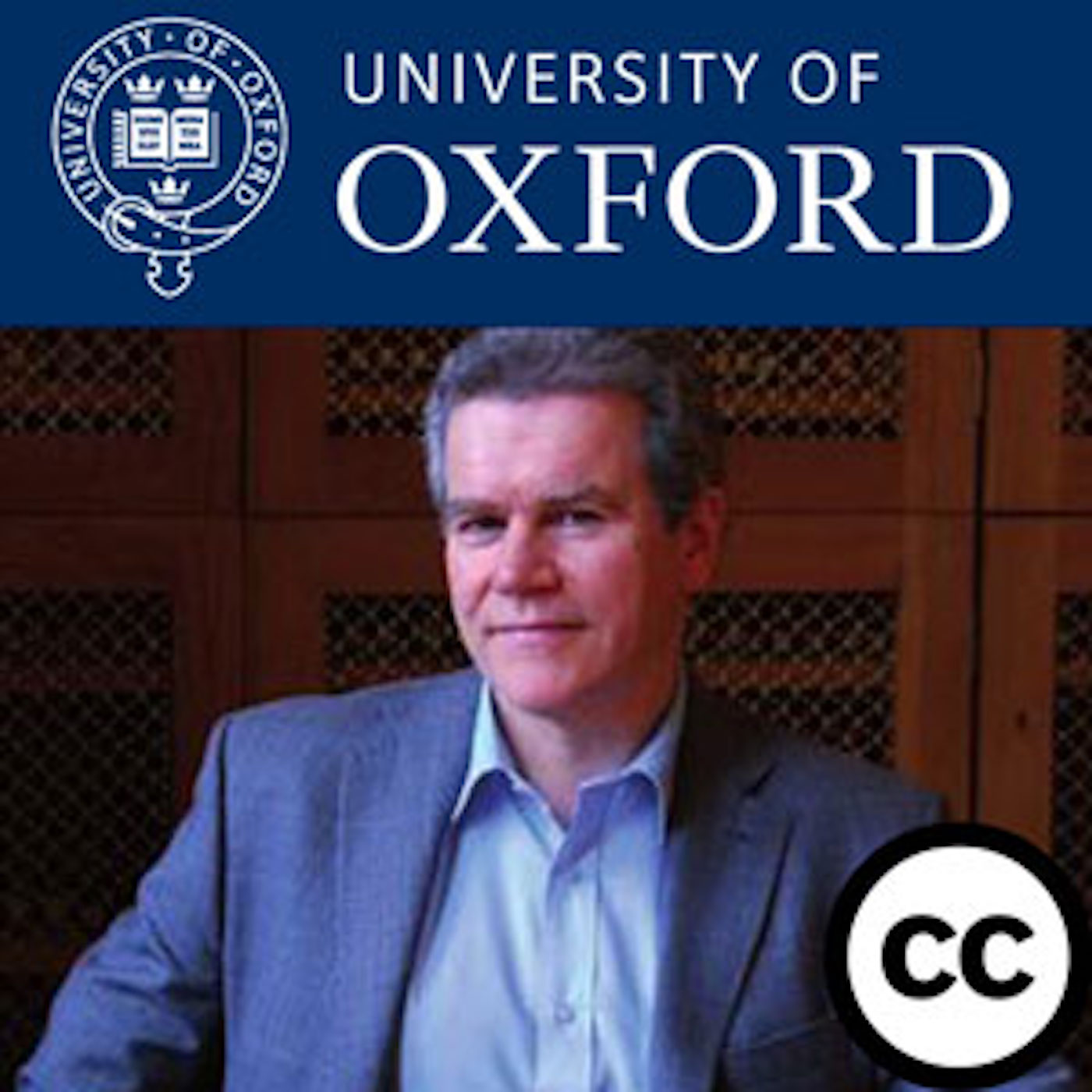

General Philosophy
Oxford University
A series of lectures delivered by Peter Millican to first-year philosophy students at the University of Oxford. The lectures comprise of the 8-week General Philosophy course, delivered to first year undergraduates. These lectures aim to provide a thorough introduction to many philosophical topics and to get students and others interested in thinking about key areas of philosophy. Taking a chronological view of the history of philosophy, each lecture is split into 3 or 4 sections which outline a particular philosophical problem and how different philosophers have attempted to resolve the issue. Individuals interested in the 'big' questions about life such as how we perceive the world, who we are in the world and whether we are free to act will find this series informative, comprehensive and accessible.
Episodes
Mentioned books

Nov 30, 2010 • 11min
6.2 Problems with Resemblance
Dive into the intriguing debate on primary versus secondary qualities, exploring how our perception shapes reality. Unravel Berkeley's and Locke's arguments about whether qualities exist solely in the mind or are inherent to objects. Discover the philosophical complexities of solidity, challenging Hume's circular reasoning and the reliance on secondary traits. This lively discussion sheds light on the intricacies of how we experience the world around us.

Nov 30, 2010 • 14min
6.1 Introduction to Primary and Secondary Qualities
Dive into the intriguing world of perception and the distinction between primary and secondary qualities. Discover how early modern philosophers, especially John Locke, shaped our understanding of reality. Explore how modern science impacts our sensory experiences and the way we perceive the world around us. Unpack the philosophical problem of distinguishing what exists in the world from our interpretations of it.

Nov 29, 2010 • 13min
5.4 Scepticism, Externalism and the Ethics of Belief
Dive into the intriguing world of knowledge and skepticism, where language and perception collide. Explore the brain in a vat thought experiment and its implications for what we think we know. The discussion highlights the challenges of absolute knowledge claims, while also examining Descartes' ideas around certainty. Discover the ethics of belief and why a balanced approach is essential in today's society, rather than complete suspension of belief. It's a thought-provoking ride through the philosophical landscape!

Nov 29, 2010 • 15min
5.3 Gettier and Other Complications
Delve into the intriguing challenges posed by Gettier cases that question the traditional definition of knowledge. Explore the debate between internalist and externalist perspectives, pondering whether certainty is ever attainable. Discover how context influences our understanding of knowledge, especially in sensitive discussions. Gain insights from Wittgenstein's philosophy, revealing how our interpretations of belief and truth can be dramatically shaped by context. It's a fascinating journey through the depths of epistemology!

Nov 29, 2010 • 17min
5.2 The Traditional Analysis of Knowledge
Dive into the intriguing world of knowledge, where the traditional analysis of justified true belief (JTB) is dissected. Explore the delicate balance between knowledge and belief, pondering whether one can possess knowledge without conscious awareness. The conversation unveils the complexities of justification and sheds light on externalism, questioning how even unseen justifications can validate what we know. This thought-provoking dialogue challenges your perceptions of truth and prompts a deeper understanding of how we comprehend knowledge.

Nov 29, 2010 • 10min
5.1 Introduction to Knowledge
Dive into the intriguing dilemma of knowledge and how we ascertain what we believe is true. The discussion navigates through philosophical debates, featuring insights from Descartes and A J Ayer. Discover the three distinct types of knowledge and reflect on the balance between skepticism and certainty. The significance of language and definitions in shaping complex concepts like freedom is also explored, shedding light on our understanding of knowledge's very foundations.

Apr 8, 2010 • 18min
4.4 The Mind-Body Problem
Dive into the fascinating debate surrounding Cartesian dualism and its critiques. Unpack modern responses from thinkers like Gilbert Ryle and G. Strawson. Discover how quantum science might reshape our understanding of consciousness and physical properties. Explore the complexities of the mind-body connection, likening it to a chess computer's operations. This thought-provoking discussion challenges conventional notions and invites listeners to reconsider the intricacies of consciousness and subjectivity.

Apr 8, 2010 • 15min
4.3 Cartesian Dualism
Discover the complexities of Cartesian dualism as the hosts explore Descartes' radical idea of the mind-body separation. They unveil intriguing critiques of his reasoning with thought-provoking analogies. Delve into philosophical inquiries about existence, the essence of thought, and what it means to be a 'thinking thing.' Their engaging discussion raises questions that challenge our understanding of personal identity and reality.

Apr 8, 2010 • 9min
4.2 Possible Answers to External World Scepticism
Dive into the intriguing world of external world skepticism, where G.E. Moore boldly asserts the existence of his own hand as a rebuttal to doubt. Explore logical reasoning through modus ponens and modus tollens, illuminating the implications of premises in moral philosophy. Discover how varying assumptions can lead to different moral outcomes and challenge your own beliefs. Additionally, delve into contemporary responses to skepticism that question Cartesian views and embrace externalism.

Apr 8, 2010 • 10min
4.1 Scepticism about the External World
Dive into the intriguing problem of knowledge and perception. Explore skepticism about the external world, distinguishing between vertical and horizontal doubt. Discover how Descartes confronted skepticism with his famous claim, 'I think therefore I am.' Uncover the intricacies of the Cartesian circle and how it challenges our understanding of certainty. This discussion promises to spark curiosity about what we can truly know!


